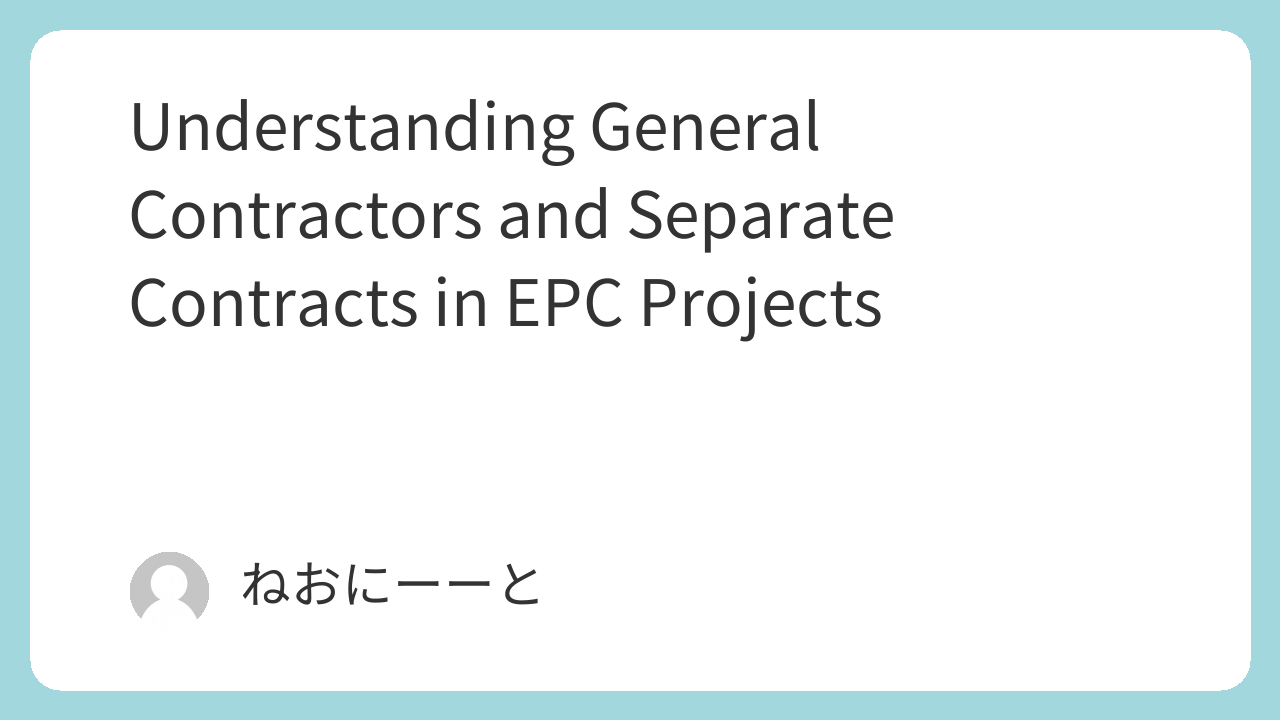Introduction
In large-scale plant projects, choosing the right project execution method is essential. Two common approaches in EPC (Engineering/Procurement/Construction) projects are “General Contractor” and “Separate Contracts.” This article explores the differences between these two models and how each impacts chemical plant projects, especially from the perspective of plant engineers.
Main Content
What is EPC?
EPC stands for:
- Engineering – Design and technical planning
- Procurement – Purchasing of equipment and materials
- Construction – Actual construction work
Each phase requires different resources in terms of time, cost, and manpower:
| Phase | Time | Cost | People |
|---|---|---|---|
| Engineering | High | Low | Low |
| Procurement | Low | High | Low |
| Construction | Mid | Mid | High |
EPC is a core concept for executing plant projects and directly relates to how contractors are selected.
General Contractor (GC)
A General Contractor model involves outsourcing all phases of EPC to one company. It’s essentially a “turnkey” solution.
Key Features:
- Delegation of Engineering: Ideal when the owner lacks in-house engineering teams.
- Labor Availability: The contractor ensures sufficient skilled labor for large-scale jobs.
- Standard Process Compatibility: GC works best when the design and process are well-defined and typical, such as in petrochemical or bulk chemical plants.
Separate Contracts (SC)
This method involves the owner managing Engineering and Procurement while Construction is subcontracted separately.
Key Features:
- Speed and Familiarity: Partners often know each other well, allowing smoother, faster execution.
- Strong In-house Procurement: Suitable for companies with strong internal procurement capabilities.
- Lower Cost: Avoids additional costs associated with GCs like temporary housing or transport.
- Hands-on Experience: Encourages owner engineers to gain practical project experience.
GC vs SC – Summary Table
| Aspect | General Contractor | Separate Contracts |
| Delegation | Full EPC | Partial (C only or split) |
| Cost | Higher | Lower |
| Flexibility | Lower | Higher |
| In-house Workload | Lower | Higher |
| Learning Opportunity | Limited | Greater |
Conclusion
Choosing between General Contractors and Separate Contracts depends on project scale, available resources, and the owner’s in-house capability. Both methods have their strengths—understanding their characteristics is key to successful project execution.
Whether you’re managing a chemical plant or working with an EPC firm, selecting the right strategy based on your constraints and goals is essential.
About the Author – NEONEEET
A user‑side chemical plant engineer with 20+ years of end‑to‑end experience across design → production → maintenance → corporate planning. Sharing practical, experience‑based knowledge from real batch‑plant operations. → View full profile

Comments